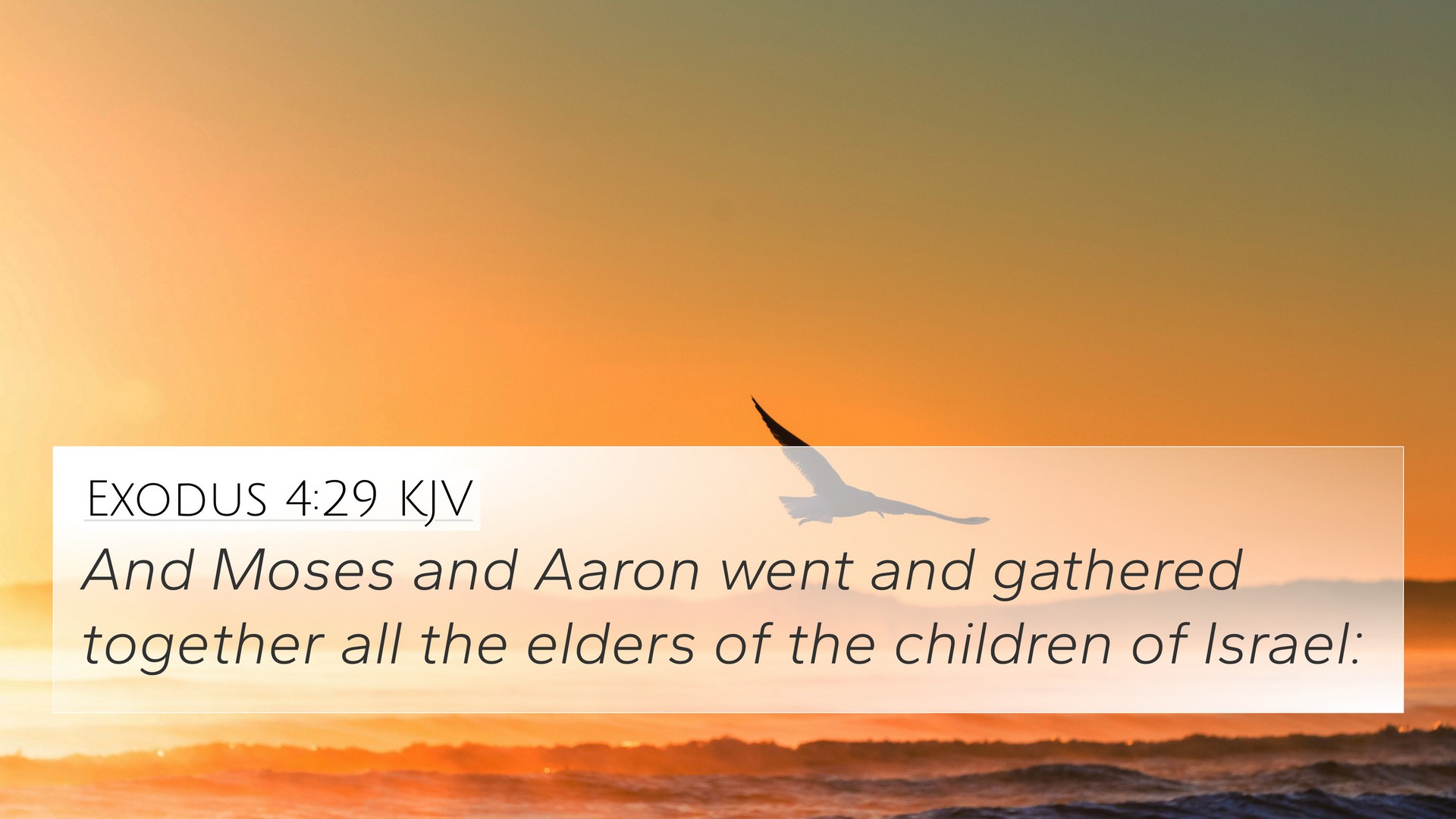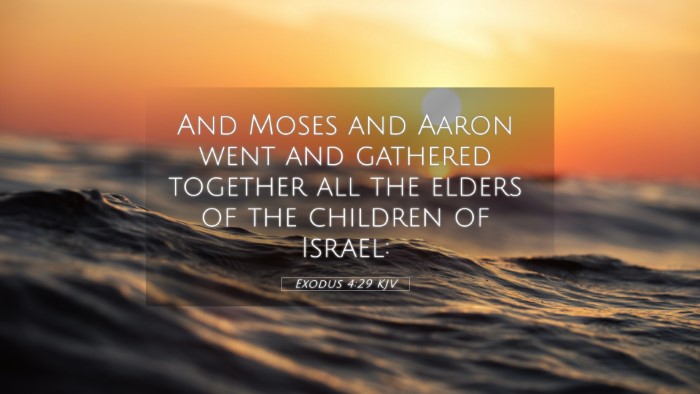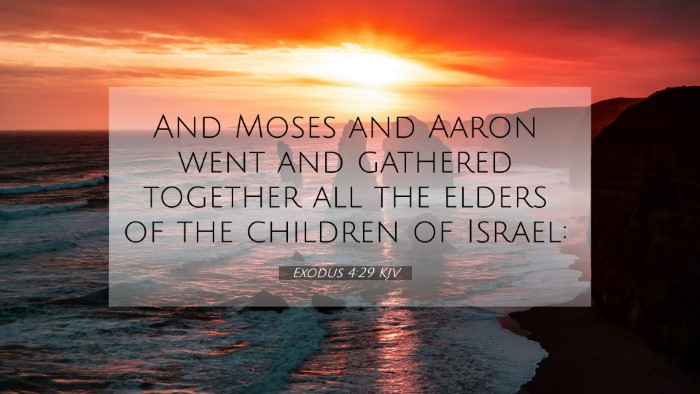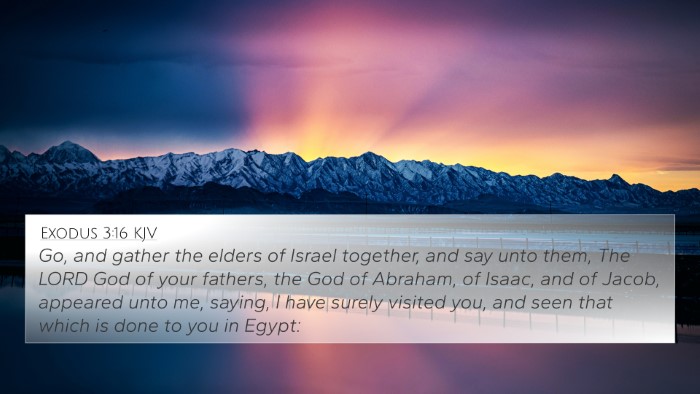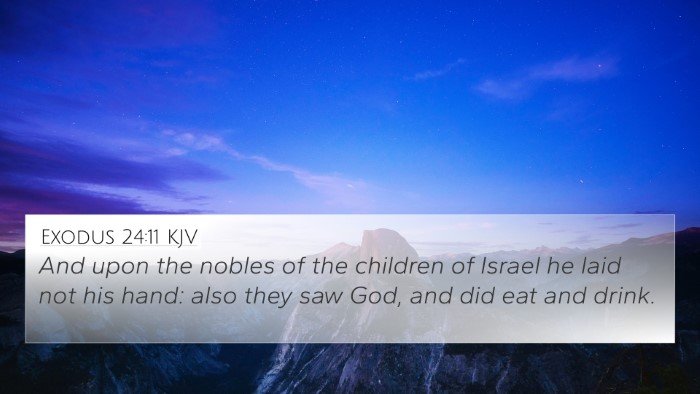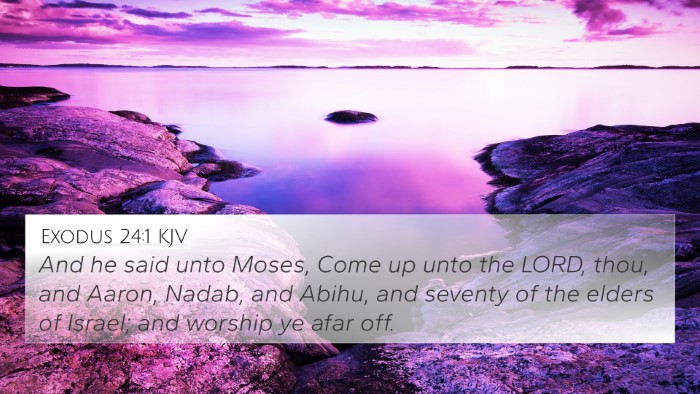Understanding Exodus 4:29
Exodus 4:29 states: "And Moses and Aaron went and gathered together all the elders of the children of Israel." This verse marks a pivotal moment in the narrative of the Exodus, highlighting the beginning of Moses and Aaron's mission to lead the Israelites out of bondage in Egypt. The significance of this gathering is multifaceted, as it embodies themes of leadership, divine commission, and communal action within the religious framework of the Israelites.
Commentary Insights
Insights from Matthew Henry, Albert Barnes, and Adam Clarke provide a deeper understanding of this verse:
- Matthew Henry: He emphasizes the importance of unity among the elders of Israel during a critical time of oppression. By gathering them, Moses and Aaron sought to consolidate support for their divine mission, demonstrating the necessity of leadership in times of crisis.
- Albert Barnes: Barnes focuses on the prophetic nature of this assembly, noting that the calling together of the elders was not merely strategic but also a fulfillment of God's plan to redeem His people. This illustrates how God orchestrates events in history for His purposes.
- Adam Clarke: Clarke remarks on the significance of the elders themselves, who acted as representatives of the people. Their acceptance and acknowledgment of Moses and Aaron's mission would be crucial for the subsequent events of liberation from slavery.
Thematic Connections
This verse acts as a bridge to various biblical themes and connections, which resonate throughout the Scriptures:
- Leadership: The role of Moses and Aaron as leaders reflects the biblical principle that God appoints individuals to guide His people, as seen in Numbers 27:18 where Joshua is chosen to lead Israel.
- Community and Gathering: The gathering of the elders mirrors the communal meetings found in Acts 15:6, where the church leaders convened to discuss significant doctrinal issues.
- Divine Commission: The divine commissioning of Moses parallels other biblical figures called for significant tasks, such as Samuel in 1 Samuel 3:10.
- God's Promises: This gathering is tied to the fulfillment of God's promises concerning Israel’s liberation. In Exodus 6:6-7, God reassures His people of deliverance.
- Prophecy and Worship: The assembly presages worship and recognition of God's sovereignty, akin to congregational gatherings seen in Psalm 22:22, which emphasizes praising God in the assembly.
- Obedience: The elders’ response to Moses highlights the theme of obedience, which resonates through the narrative as a critical component of Israel’s identity, similar to the instruction in Deuteronomy 6:4-5.
- Intercession: The role of leaders like Moses and Aaron as intermediaries for God’s message to the people connects with the concept of intercessory roles seen in Hebrews 4:14-16.
Bible Verse Cross-References
Here are key Bible verses related to Exodus 4:29 that showcase its thematic relevance:
- Exodus 3:16: God's instruction to Moses to gather the elders.
- Exodus 12:21: Instructions given by Moses to the elders before the Passover.
- Exodus 19:7-8: The people's response to Moses’ teachings.
- Exodus 18:12: Jethro’s counsel to Moses regarding the leadership structure.
- Acts 4:23: The apostles gathering together after persecution.
- Matthew 18:20: God's presence in the gathering of His people.
- 1 Corinthians 12:12-14: The body of Christ as a unity of believers.
Conclusion
In conclusion, Exodus 4:29 serves as a vital intersection for several thematic explorations within Scripture. Through the comments of established biblical scholars and connections to other verses, we can appreciate the importance of this moment in Israel's narrative, which not only sets the stage for liberation but also underscores the principles of leadership, community, and the faithfulness of God to His promises.
